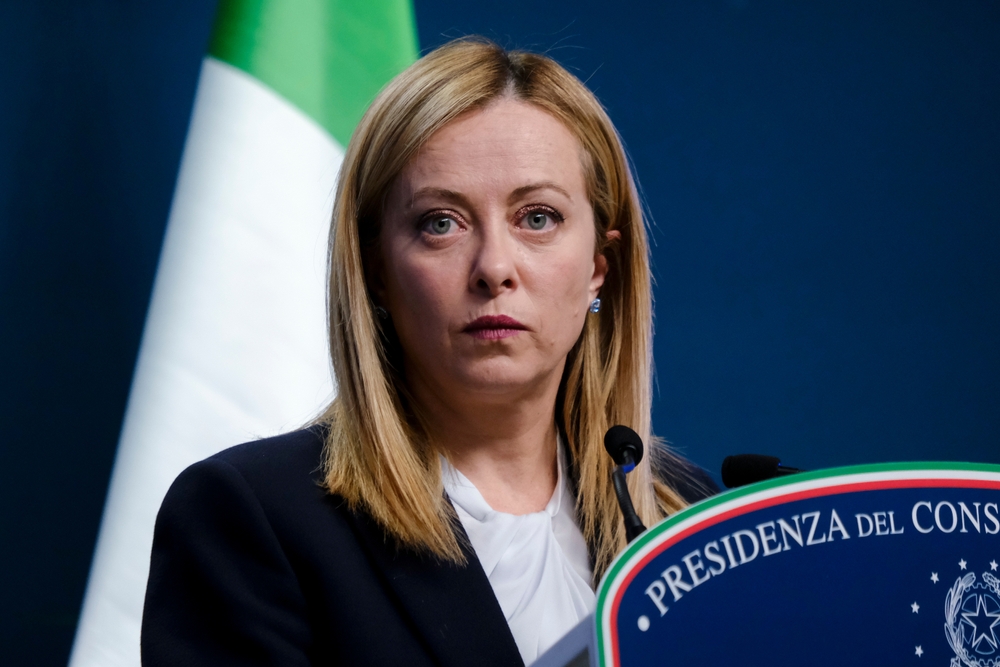Meloni’s Response in the Chamber Sparks Tensions Ahead of EU Council
In a heated exchange in the Chamber, Italian Prime Minister Giorgia Meloni responded to opposition criticism by defending her vision for Europe, quoting the Ventotene Manifesto. Meloni, addressing her critics, emphasized the importance of Europe’s unity and questioned the opposition’s unclear vision of Europe. The debate became tense as the prime minister cited excerpts from the Manifesto, leading to protests from the opposition, including accusations of misusing the manifesto’s principles. Meloni also criticized the opposition for their stance on defense spending and military involvement in Ukraine, questioning their commitment to NATO. The exchange escalated when she demanded clarity on the Democratic Party’s position regarding Trump’s policies, suggesting that rejecting Trump might imply leaving NATO and the G7. Meanwhile, opposition leaders, including the ANPI, condemned her interpretation of the Manifesto, asserting that it represents the values of anti-fascists and democratic European ideals. The session was interrupted multiple times due to the escalating protests.
Crosetto on Defense and Ukraine: “Security Comes First”
Italian Defense Minister Guido Crosetto commented on the ongoing situation in Ukraine, acknowledging a small step forward in infrastructure protection, while stressing that the ultimate goal is to ensure no part of Ukraine is bombed, including civilian areas. Reflecting on a recent phone call between Vladimir Putin and Donald Trump, Crosetto emphasized the importance of Ukraine receiving support until Russian attacks cease. He also discussed Europe’s military preparedness, stating that a nation cannot exist without defense, just as it cannot be democratic without a parliament. Crosetto highlighted Italy’s historical reliance on U.S. defense resources and the need for European nations to enhance their military capabilities. He questioned whether countries like Italy or Germany would be able to defend themselves in the event of a prolonged attack, stressing the necessity of a strong defense to ensure national security. He also rejected the notion of pitting defense against other needs like healthcare, arguing that defense is foundational for the existence of a state.
Italy’s “Security Bill” Sparks Debate Over Intelligence Powers
The Italian Senate’s Constitutional Affairs and Justice Committees have approved Article 31 of the “Security Bill,” a controversial law that seeks to strengthen measures against terrorism and organized crime while expanding police powers. The article grants significant authority to Italy’s intelligence agencies, including the ability to obtain confidential information from public administrations and public companies, without providing adequate privacy safeguards. Critics, especially from opposition parties, argue that the law could lead to mass surveillance, forcing universities and hospitals to hand over sensitive personal data. Concerns have also been raised about the potential for intelligence agents to carry out actions that would normally be criminal, such as infiltrating or even leading terrorist organizations, under the guise of national security. The government, however, has defended the law, with proponents arguing that it is necessary for maintaining national security and addressing modern threats. The law still requires approval from both the Chamber of Deputies and the Senate before becoming official.
Nine Investigated for Deadly Explosion at Eni Facility in Calenzano
Nine people are under investigation by the Prato prosecutor’s office for the deadly explosion at the Eni facility in Calenzano, Florence, on December 9, 2024. The explosion killed five people and injured 26 others. Seven of those under investigation are Eni employees, while the others are executives from the external company Sergen, which was conducting maintenance work at the time. They face charges of multiple manslaughter, negligent disaster, and injury. The prosecutor, Luca Tescaroli, described the incident as “predictable and avoidable.” The explosion is believed to have been caused by a gasoline engine used during the maintenance work, with additional fuel tankers refueling at the site. The prosecutor claims that Eni and Sergen attempted to hinder the investigation by producing documents to obscure accountability. Among the people investigated are key Eni safety officials and managers from both Eni and Sergen.
National Railway Strike Announced in Italy for March 19th
The Ugl Ferrovieri, Slm Fast Confsal, and Orsa Ferrovie unions have called for a nationwide strike in Italy’s railway sector on Wednesday, March 19th, from 9 AM to 5 PM. The strike will affect Trenitalia, Italo Ntv, and Trenord employees. As usual for weekday strikes, there will be guaranteed service windows, with regional trains running regularly from 6 AM to 9 AM and from 6 PM to 9 PM, and some long-distance trains will also be maintained. The strike is in protest of the failure to renew the national collective labor contract, which expired over a year ago, and to demand improvements in working conditions.

